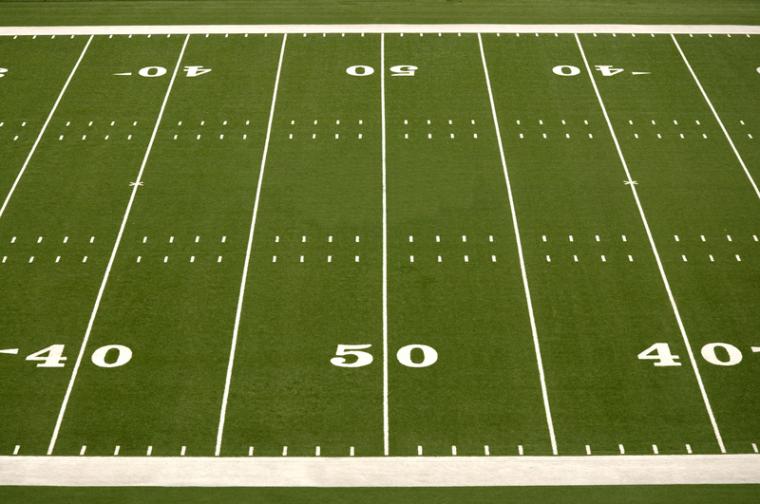

For Los Angeles, Super Sunday is looking better and better. SoFi Stadium in nearby Inglewood, Calif., will host Super Bowl LVI on Feb. 23, 2022, and a new report estimates the game’s overall economic impact to the L.A. region at between $234 million and $477 million. What’s more, the game could result in up to $22.5 million in additional tax revenues that stay in Los Angeles County, while also generating as many as 225,000 total room nights and creating 2,200 to 4,700 new jobs (many in the event production and hospitality sector).
The 61-page report, issued by Micronomics Economic Research and Consulting, notes that “an influx of visitor spending and excitement around a world-class event like the Super Bowl could signify a turning point that helps stimulate the regional economy, especially for small businesses and industries that have been hard hit by the pandemic.”
“We’re coming out of an 18-month pandemic where we need to show the world that L.A. is back open for business, that it’s safe for business, and everything that L.A. has to offer,” Kathryn Schloessman, the president and CEO of the Los Angeles Sports & Entertainment Commission, told Los Angeles Magazine. “We need to keep our hospitality, our travel and tourism business going. That’s very important. It creates jobs and tax dollars.”
Super Bowl LVI’s economic impact estimates are based on the number of out-of-town visitors ranging from 100,000 on the low end and 150,000 on the high end, average daytime spending of $100 to $200 per person per day, and an average stay of four days and three nights in hotel rooms with nightly rates ranging from $318 to $348.
“We’ve been saying we’re very lucky to enjoy the benefits now and through the next several months of what they call ‘the revenge spend,’ which is everybody coming out of COVID who didn’t spend money last year,” Schloessman added. “They want to get out and go to activities.”
SoFi Stadium, which cost $5 billion to build, opened in 2020 and holds more than 70,000 fans for Los Angeles Rams and Los Angeles Chargers games, but it can be expanded to fit more than 100,000 fans for major events. Super Bowl LVI will be the eighth Super Bowl hosted in the L.A. area. Prior to next year’s game, the most recent was Super Bowl XXVII in 1993, at the Rose Bowl in Anaheim. Only Miami and New Orleans have hosted more.
Local officials have hailed Inglewood as a rising tourism star, and the Micronomics report emphasizes the city’s appeal:
With the new, state of the art SoFi Stadium and YouTube Theater — which are developing into a mega sports and entertainment hub — Inglewood will benefit financially each time an event takes place. Some of the planned events at SoFi Stadium and/or the YouTube Theater include music concerts (e.g., The Rolling Stones in October 2021, Kenny Chesney in July 2022, and Mo?tley Cru?e and Def Leppard in August 2022), the Jimmy Kimmel LA Bowl game every year starting in December 2021, the 2023 College Football Playoff National Championship Game, WrestleMania in April 2023, candidate host city for the 2026 FIFA World Cup, the 2028 Olympic and Paralympic Games, and home games for the Los Angeles Rams and Los Angeles Chargers. Moreover, SoFi Stadium, the City of Inglewood and LA County continue to bid on additional events to bring to the LA region.
That said, economists for years have disputed the estimated economic impact associated with Super Bowls. One of the most vocal is Victor Matheson, a professor of economics at College of the Holy Cross.
“[M]yself and others, people who … actually have gone back and looked at the economies that have hosted the Super Bowl, we get numbers between $30 and $130 million,” Matheson recently told Cronkite News. “Which is not zero, but also a fraction of what the NFL is saying. And we have explanations of why that might be the case.”
Those explanations include the “substitution effect” — “Money is being spent by people who are already here, and those people absent the Super Bowl would have spent money elsewhere in the local economy” — and the “crowding effect.”
“Even if you have a hotel that is completely full of Super Bowl fans, you can’t say that the entire hotel has the benefit of the Super Bowl unless you also subtract out the people who would have been there anyway,” Matheson said.
Nevertheless, economic impact numbers drive the sports tourism business — especially when it comes to high-profile, world-class events like the Super Bowl. Here are the economic impact numbers from other recent Super Bowls:
- Super Bowl LI (2017, NRG Stadium, Houston): $347 million, which was $107 million more than the economic impact of Super Bowl 50 at Levi’s Stadium in Santa Clara, Calif.
- Super Bowl LII (2018, U.S. Bank Stadium, Minneapolis): $370 million
- Super Bowl LIII (2019, Mercedes-Benz Stadium, Atlanta): $185 million (estimated)
- Super Bowl LIV (2020, Hard Rock Stadium, Miami): $572 million
- Super Bowl LV (2021, Raymond James Stadium, Tampa, Fla.): Not available
Los Angeles also will host the 2028 Summer Olympics, which local officials have said could bring an estimated economic impact of more than $11 billionto the entire Southern California region.

